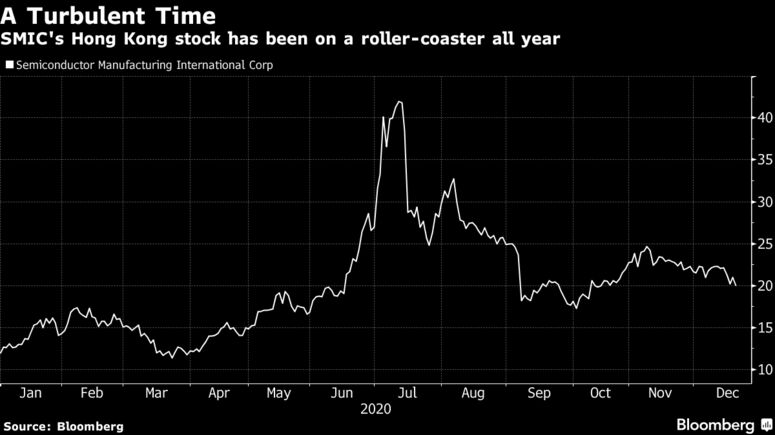Clash of the Titans
"This action stems from China's military-civil fusion doctrine and evidence of activities between SMIC [Semi-conductor Manufacturing International Corp.] and entities of concern in the Chinese military industrial complex.""[Other affected Chinese entities include those] that enable human rights abuses, entities that supported the militarization and unlawful maritime claims in the South China Sea, entities that acquired U.S.-origin items in support of the People's Liberation Army's programs, and entities and persons that engaged in the theft of U.S. trade secrets."U.S. Department of Commerce
 |
The DJI Phantom 3 Standard drone. David Paul Morris | Bloomberg | Getty Images |
The government of the United States through its Commerce Department has taken the giant step of blacklisting drone maker SZY, DJI Technology Co., and over sixty additional Chinese companies "to protect U.S. national security". The decisive move was confirmed by Commerce Secretary Wilbur Ross, reported by Reuters. The instant effect was to see shares in SMIC, China's elite chipmaker slide 5.2 percent in Hong Kong on the news release.
"There's plenty in the open press about how DJI has been part of the surveillance state and overall suppression within China", a senior Commerce official clarified in support of the decision. The newly banned companies are majority Chinese. They will now be added to a list denying them access to American technology, from software to circuitry, joining Huawei Technologies Co. heading up the list of proscribed Chinese companies linked with the Chinese military complex.
Tension between the globe's two largest economies clashing on issues such as trade all the way to the pandemic have seen Huawei and SMIC caught in the web of disgruntled trade relations. The fact that these huge enterprises are linked to the People's Liberation Army, and to the leadership of the Chinese Communist Party does not endear them to Washington. Nor does their tradition of leaching off U.S. technology alongside their penchant for cybertheft of property rights and srong-arming U.S. companies for access to the Chinese market only on surrendering critical classified data.

The announcement need not have come as a surprise to anyone involved in the situation, much less economists, political junkies and the general public, since it was widely anticipated that President Donald Trump would move to level sanctions against China's national technological champions prior to leaving office on January 20. The American expansive use of sanctions against Chinese companies was predictably characterized by Chinese Foreign Minister Wang Yi as "unacceptable".
In a video address to the Asia Society on Friday, Foreign Minister Wang called on the U.S. to put a stop to "overstretching the notion of national securitry" as well as "the arbitrary suppression of Chinese companies". SMIC, a supplier to Qualcomm Inc. and Broadcom Inc. based in Shanghai, is central to Beijing's plans to build a world-class semiconductor industry in an effort to release itself from reliance on U.S. technology.
 |
For its part, Washington views China's rise as a giant in technology and trade, and its clear ambitions to dominate spheres of technology, as a direct geopolitical threat, worthy of blacklisting. Which in clear trade and sanctions language threatens to cripple SMIC's longer-term aspirations through deprivation of crucial gear. For American companies exporting items to SMIC to produce 10-nanometre or greater advanced chips, license applications will now face "presumption of denial", even as items to produce chips more advanced than 10-nanometre are to be reviewed on a case-by-case basis.
As for any companies intending o export parts produced outside of the U.S. to SMIC, certain restrictions depending on how much of their technologies are of U.S.-origin will come into play, with Washington talking to "like-minded governments" about a unified approach to the Chinese chipmaker, according to senior Commerce officials, declining to give additional details identifying which governments the U.S. is conferring with and the potential implications on non-U.S. companies like ASMI Holding NV and Tokyo Electron Ltd. both of which also supply equipment to China for producing advanced chips.
 |
| A SMIC semi-conductor factory in Beijing |
Labels: Aggression, China, Cybertheft, Economy, Proprietary Interest, Technology, Trade, United States

<< Home